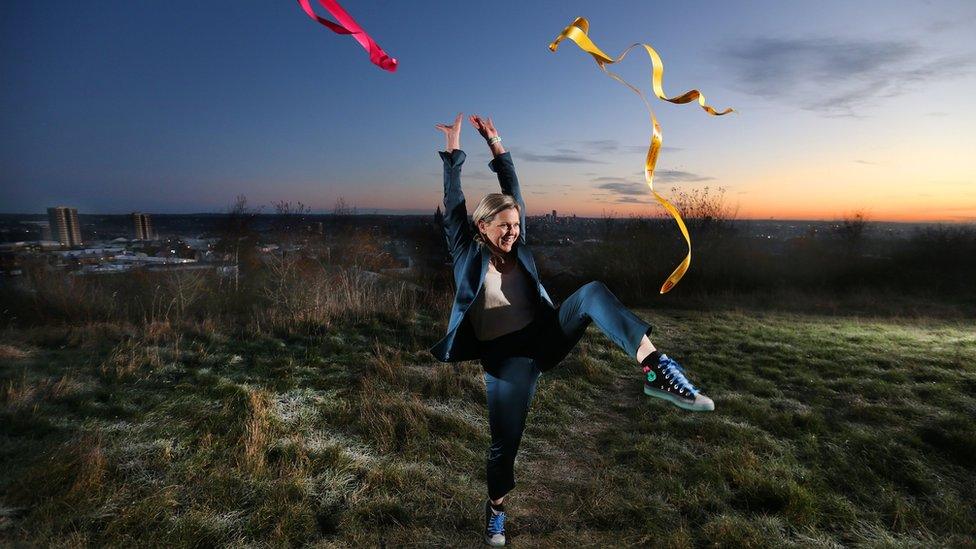Leeds 2023: How successful was the cultural fest?
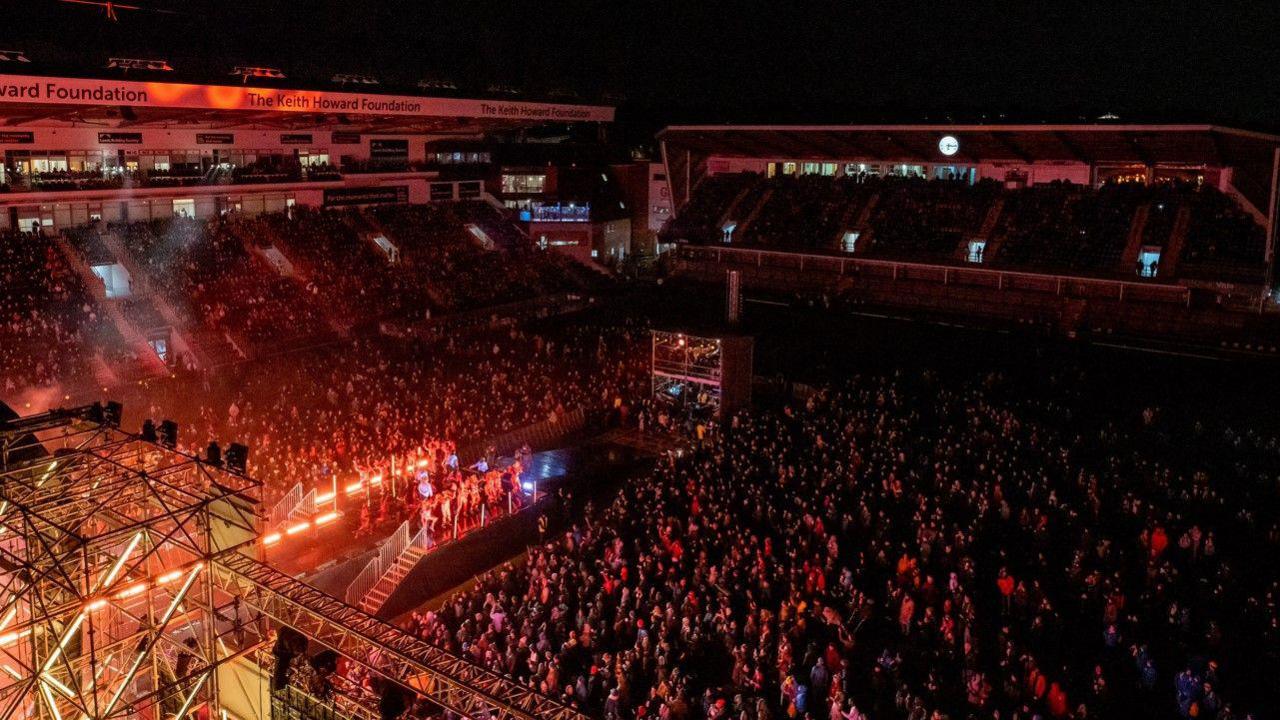
Leeds 2023 kicked off with The Awakening at Headingley Stadium in January.
- Published
Six years ago, Leeds' bid to become 2023's European Capital of Culture hit a Brexit-shaped brick wall, as British cities were automatically disqualified.
Undeterred, the city's response was to go ahead regardless and host its own year-long Leeds 2023 Year of Culture celebration.
As the year draws to a close, supporters have hailed the event for having "let culture loose", but critics have complained it fell flat.
BBC News has tried to understand whether the past 12 months are likely to have had a longer legacy.
"It’s been an extraordinary year in all sorts of ways," Kully Thiarai, creative director and CEO of Leeds 2023, says.
"This was the city that gave me my first opportunity in the arts. So, I feel incredibly proud to have played a part in putting Leeds on the cultural map.
"It’s a city that’s made a brave and bold choice to celebrate culture in this way."
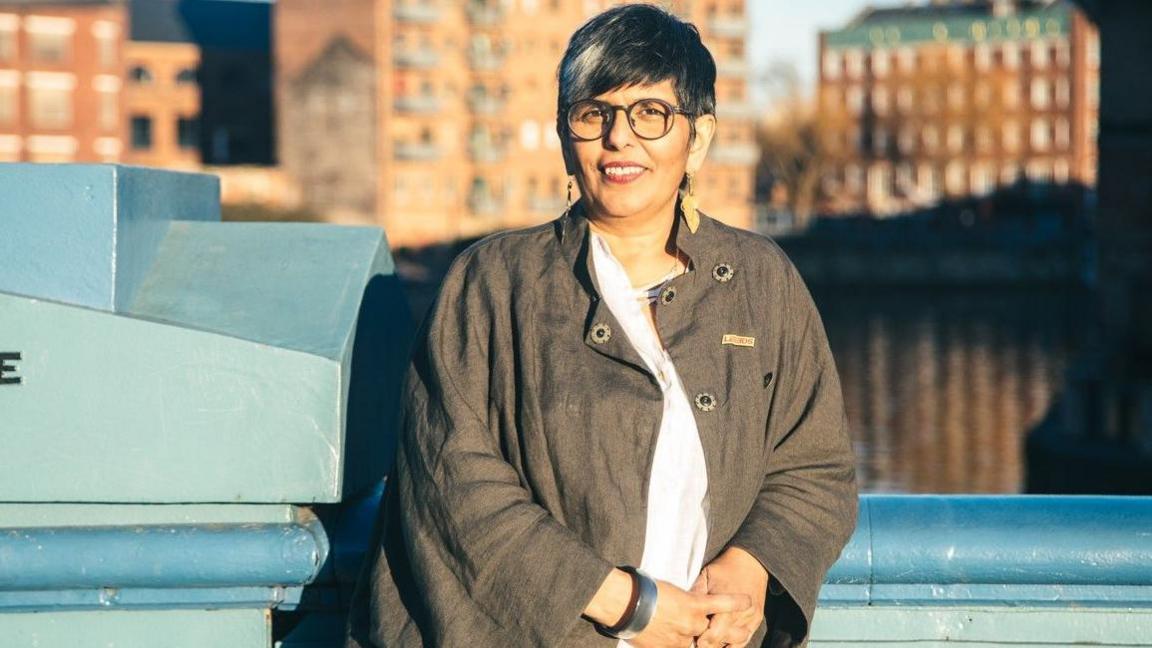
Kully Thiarai, CEO of Leeds 2023, says the year-long festival has been transformative
The West Yorkshire city's civic leaders were blindsided when the European Commission decided in 2017 that, with Brexit looming, UK cities would no longer qualify to be the continent's Capital of Culture.
By that point, £1m had already been spent on a bid backed by senior local arts figures, MPs and even then-Leeds United midfielder Kalvin Phillips.
Amid a desire not to squander that momentum, it was decided Leeds would hold a cultural festival in 2023 anyway, minus the official tag.
"If you haven’t got a chair at the table, bring a folded chair," says rapper and writer Testament.
"That’s what Leeds has done. I really like that ethic."
Born in London before coming to Leeds as a student in the late 1990s, Testament later left the White Rose county to develop his career, before returning to live in here once again.
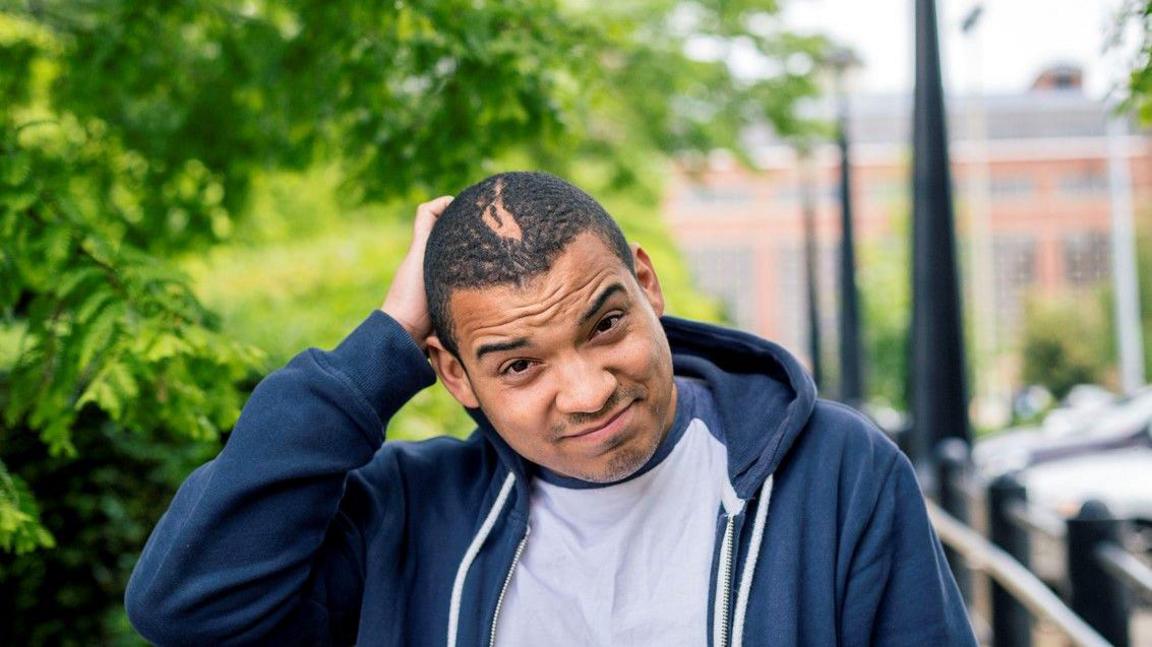
West Yorkshire rapper Testament says Leeds 2023 has been "inspiring".
As someone involved across the Leeds 2023 calendar, including its launch event, The Awakening at Headingley Stadium, he has an insight into the state of the arts in the city.
"The cultural scene here is fragmented," the 45 year old says. "It shouldn’t have to be like that.
"There’s not enough places for artists and not enough people to support you from developing your first show or song to being an artist."
But the rapper says Leeds 2023 has had the potential to change that and draw new people in.
He cites his own involvement, directing a film with 11-year-old school pupils in one of the city's disadvantaged areas, as proof the festival's impact will be lasting.
Tickets for The Awakening were given out for free in exchange for people submitting a piece of art, a move that's also drawn praise.

Has Leeds 2023 "let culture loose", as its strapline promised?
"I think that seed has been planted," Testament adds.
"They’ve managed to make loads of impact, despite not having much in the way of budgets and funding. I’ve been really impressed and inspired by that."
In an era of austerity, budgets and public funding for Leeds 2023 have become something of a political football.
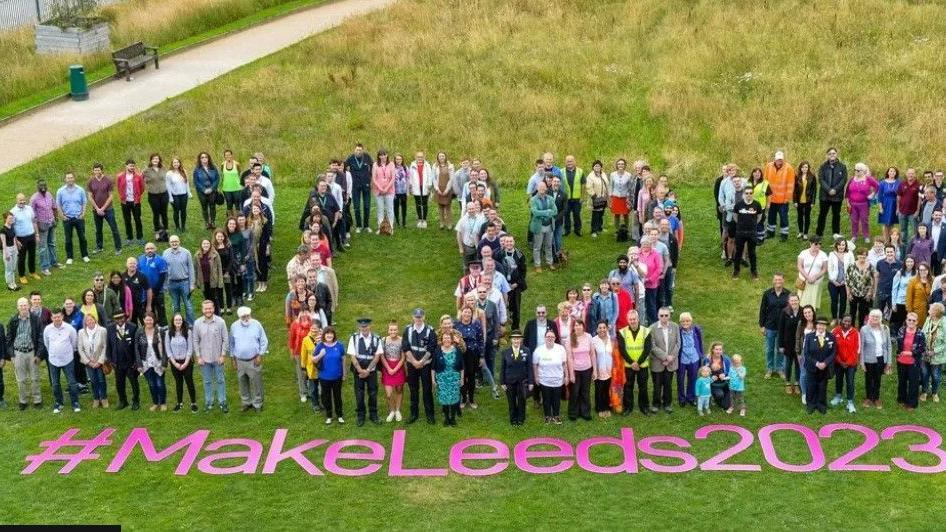
"Damp squib" or a roaring success? The cultural festival has divided opinion
With no government cash because it had no official status, the city council ploughed £6m into the project, which it says has triggered an additional £20m worth of private investment.
But "damp squib" was the stinging half-time verdict of the council's opposition Conservative leader in June.
"Vanity project" was the public conclusion of another councillor earlier in the year.
In a stark reminder that art is subjective, the Making a Stand sculpture in City Square attracted plenty of criticism, online and off.
Even one of 33 logos created to represent each of the city's districts was light-heartedly likened to "Voldemort and the dementors" from the Harry Potter books.
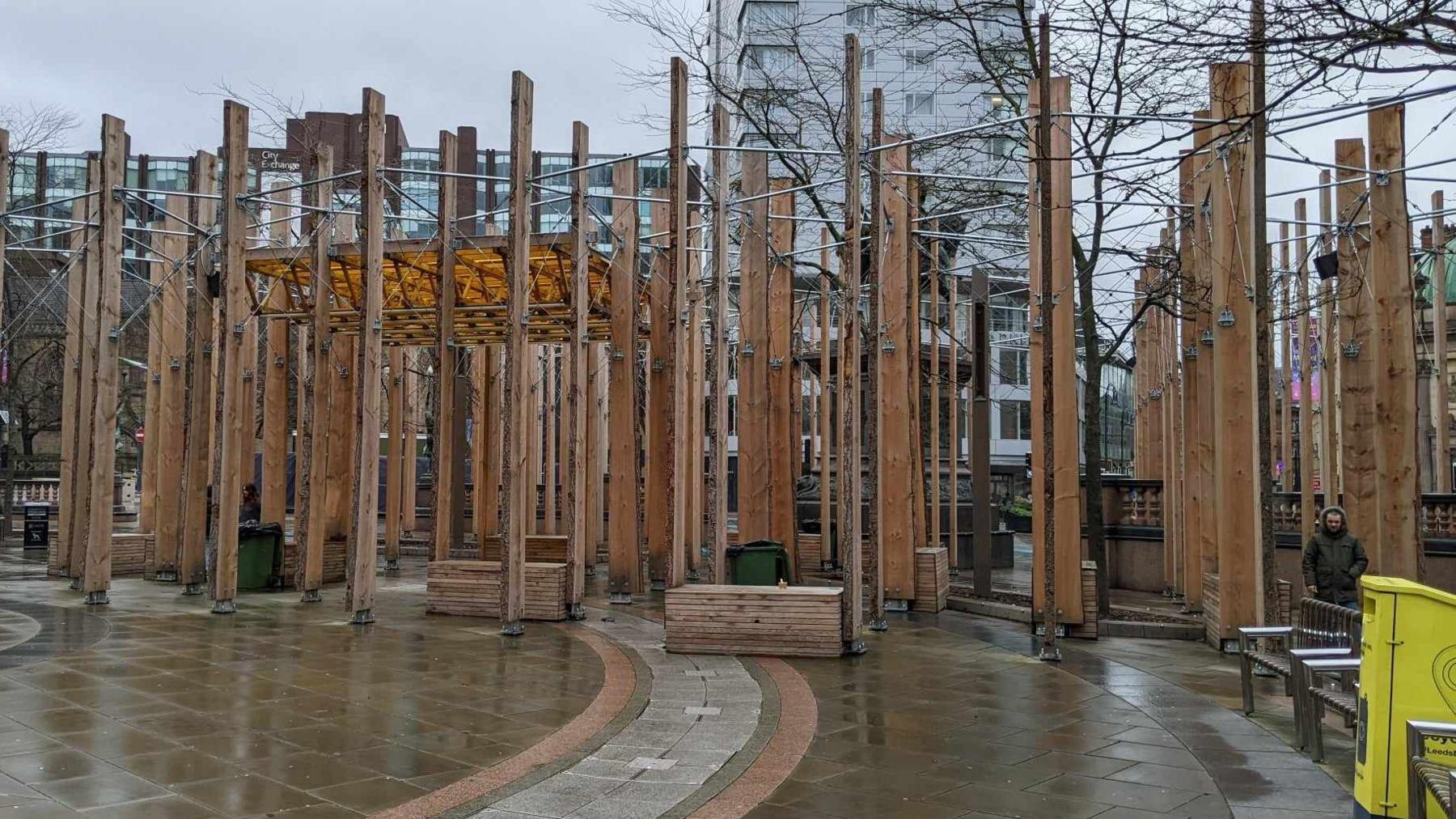
The Making a Stand sculpture in City Square has staunchly divided opinion.
"The majority of people where I live don't even know it's happened," Liberal Democrat councillor Stewart Golton, who represents the Rothwell area, explains.
"It hasn't been worth the money spent and it could have been really fantastic if we'd taken it seriously and planned it properly."
With the official bid torpedoed by Brexit, the Covid pandemic disrupting preparations and then 2023's wet summer washing out some of the outdoor events, organisers might have been forgiven for occasionally thinking the year was cursed.

Rothwell's Leeds 2023 logo was likened to 'Voldemort and the dementors' by one local councillor
But the council's deputy leader and executive member for culture, Jonathan Pryor, is adamant the year has been a success.
"We’ve really managed to put Leeds on the map, nationally and internationally," he says.
"We want to see people who work in the cultural sector staying in Leeds and West Yorkshire, rather than feeling they’ve got to move down to London.
"I think we’re achieving that."
The councillor adds: "To anyone who’s criticised, I’d say, 'how many of those 264 events across the city have you been to?'"
Meanwhile, Kully Thiarai, whose role as director is independent of the council, accepts "people will disagree" about money when finances are tight.
But she adds: "I think culture is a fundamental right. It’s not a statutory obligation for local authorities, so it takes a huge amount of commitment and passion to understand that culture is a vital part of our economy."
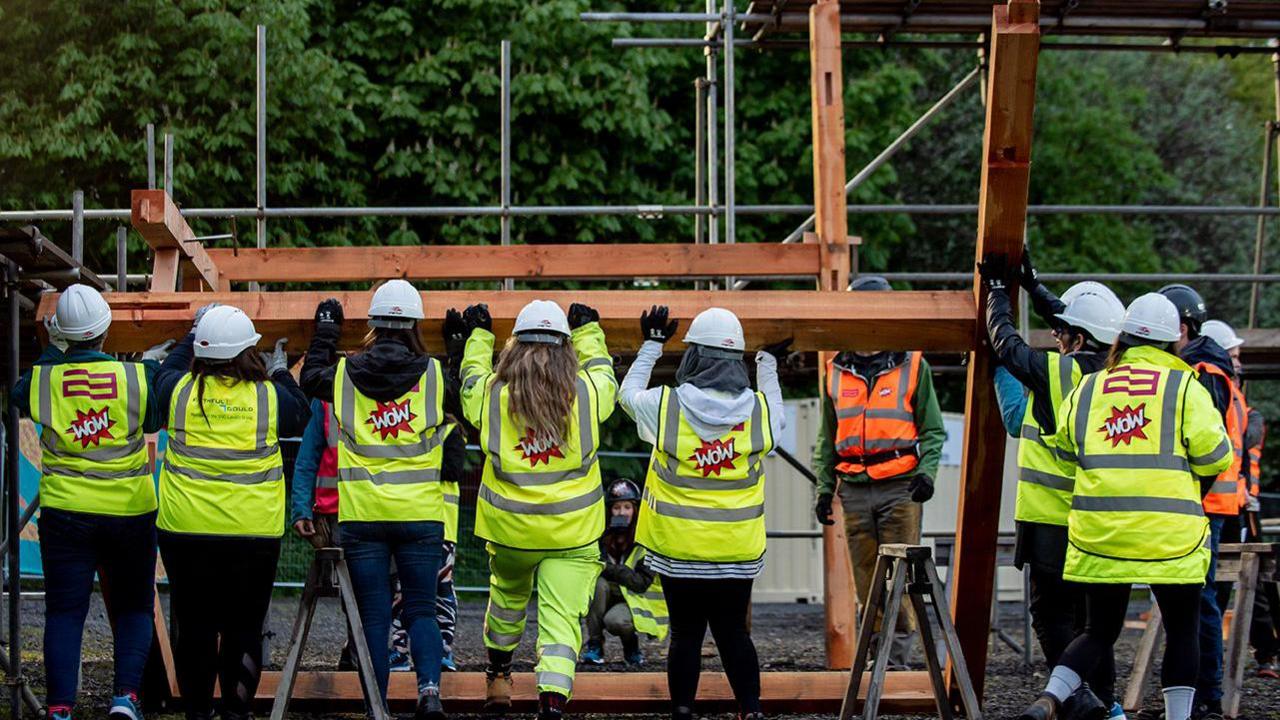
The building of the WOW barn in just 24 hours has been cited as the highlight of the festival for many
It is the impact of the festival on the poets, painters and performers of tomorrow's Leeds that organisers hope will shape a lasting legacy for the year.
An estimated 29,000 children have been involved in one way or another, often through engagement with local schools.
Children's Day: Reimagined - a revival of a popular event last held in the 1960s - drew scores of young people to the city's Roundhay Park despite pouring rain.
"When I was a child I had very little access to the arts and it was almost accidental how I got involved in the theatre," Ms Thiarai says.
"So for me it’s about how do you open those doors for people to engage?"
Mr Pryor adds: "A lot of the legacy will be in those young people who’ve had experiences they otherwise might not have done."
'It's changed my life'
For Trina Elkington, the legacy of Leeds 2023 cannot possibly be quantified in numbers or money.
She is one of the 1,000-strong army of volunteers who have been the public face at festival events.
A sport-mad triathlete, the 55-year-old from east Leeds suffered a trauma to her foot in November 2022, which left her unable to walk unassisted.
Shattered by her enforced retirement from running, cycling and swimming, she volunteered for the festival in the summer and says the experience has been transformative for her mental health.
"It’s changed my life because I’ve gone from a place where I was very low, to a place where I’ve made lots of friends and had fantastic experiences I wouldn’t have otherwise had," she says.
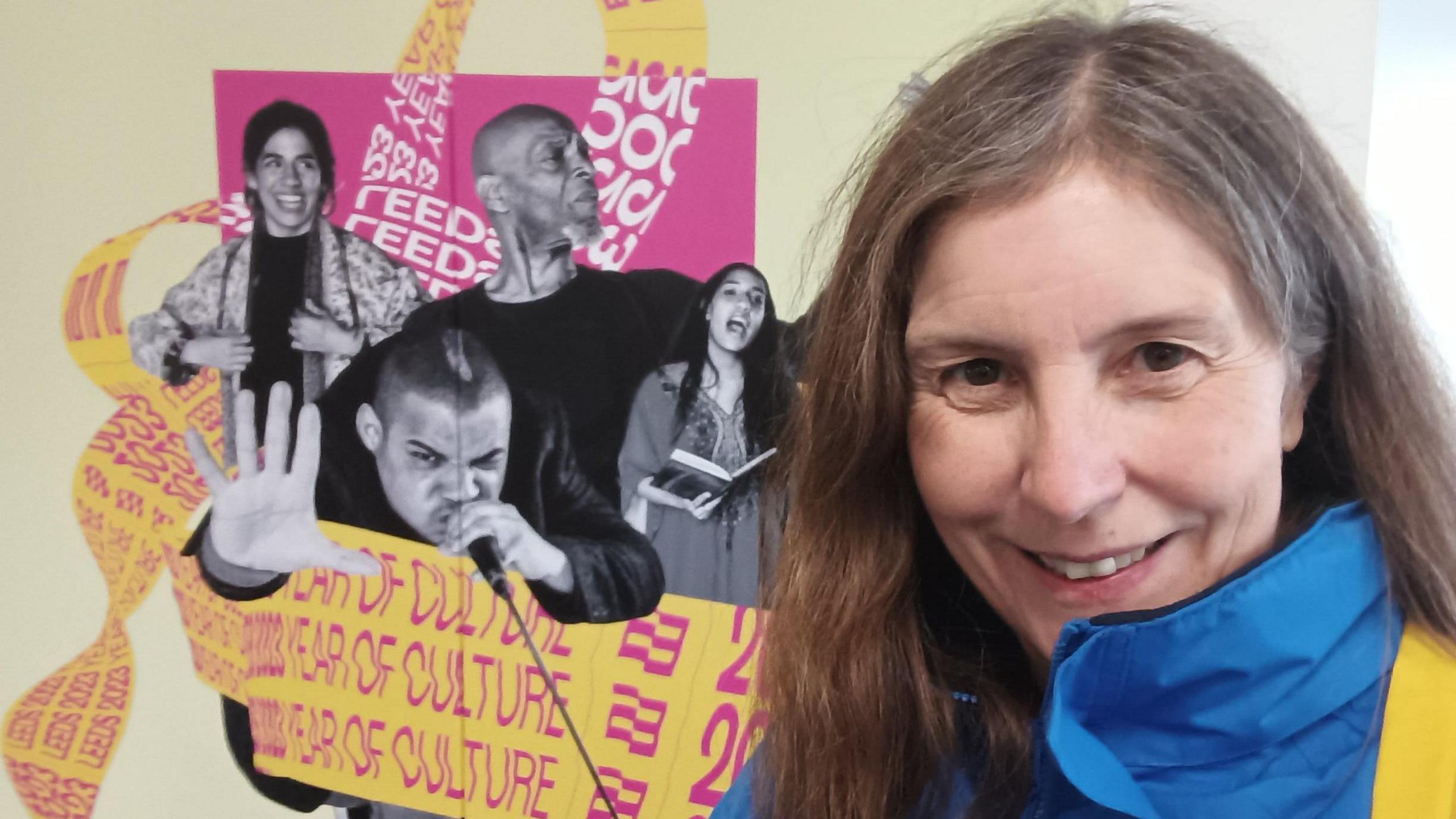
Volunteer Trina Elkington says the experience has been "life-changing".
"It’s given me that buzz back," she adds.
"I thought I’d just meet some new people and see more exhibitions that I would have done, but it’s been so much more than that."
She says one of the shows she attended, All That Lives, which was on at Leeds Playhouse in the autumn, helped change her perspective.
Based around the Mexican concept of celebrating the passing of loved ones and experiences rather than mourning the end, Trina says the show helped her come to terms with her life-changing circumstances.
"I’ve made friends from all kinds of different backgrounds," she says. "Everyone who volunteered has been there for the right reasons. It’s been humbling."
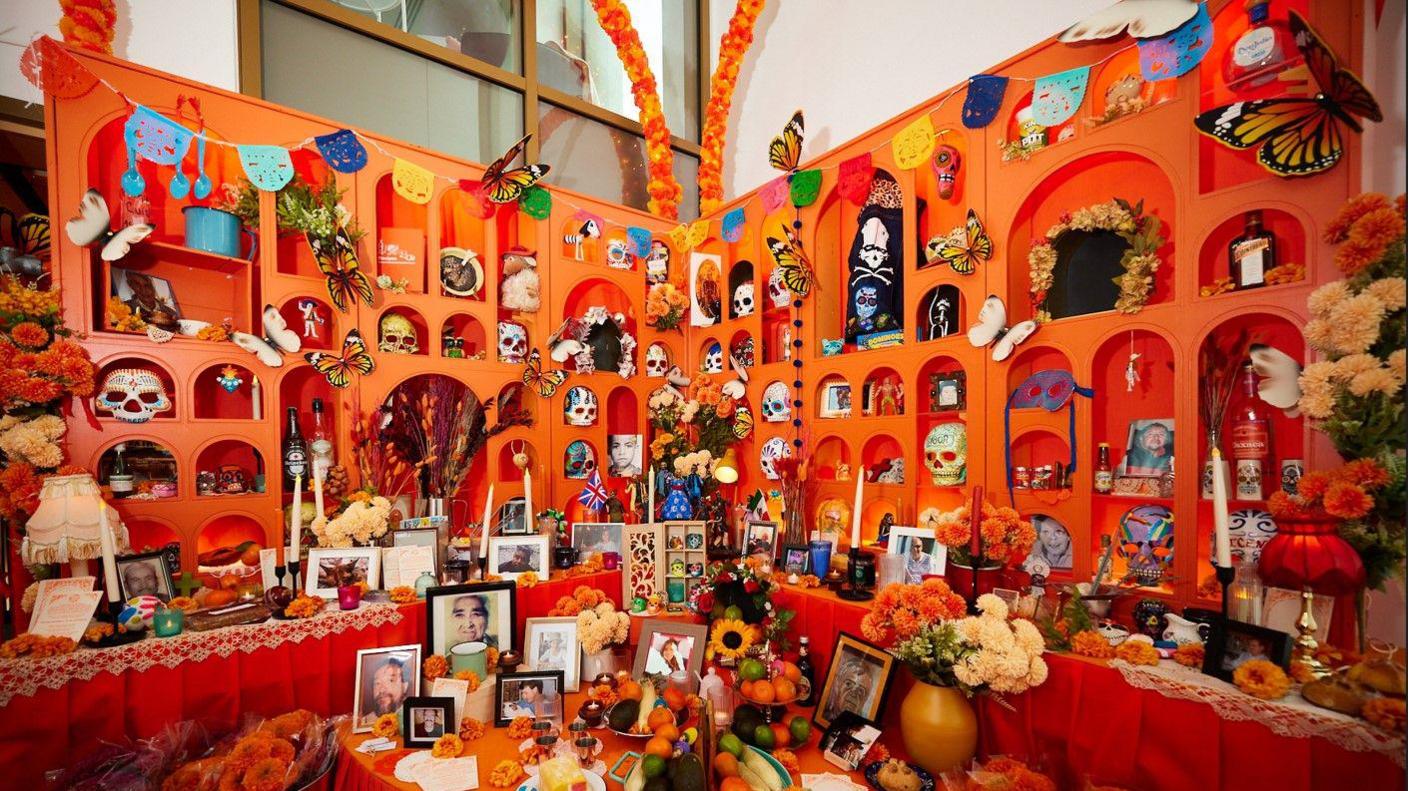
All That Lives went on show at Leeds Playhouse in the autumn
Sometimes overshadowed by the likes of Manchester and Liverpool, Leeds can sometimes feels like it is trying to carve out a niche of its own in the UK's cultural landscape.
Unlike Liverpool in 2008, Leeds did not have Europe's blessing for its 2023 festival, but perhaps declaring itself the unofficial winner anyway may help change perceptions of the city from beyond.
Its true impact may take years to measure.
Related topics
More on Leeds 2023
- Published2 May 2023
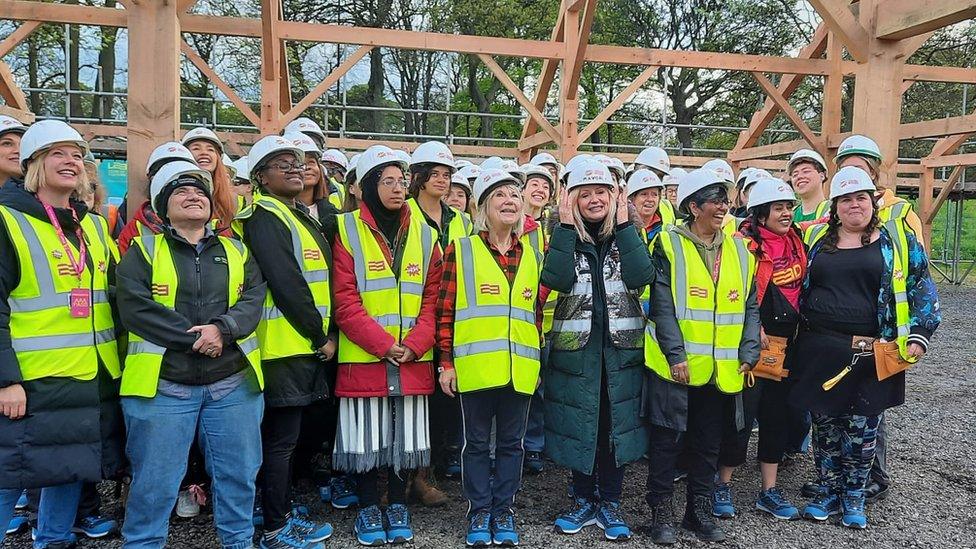
- Published24 November 2023
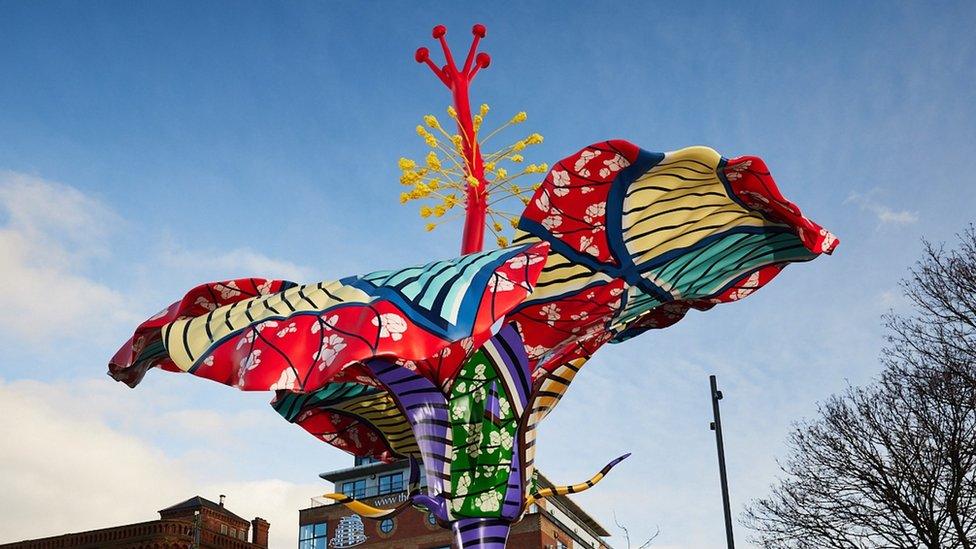
- Published6 January 2023
